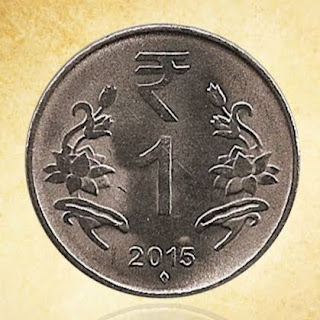
The forwarded message was:
" Why should you collect that 1 rupee change from the supermarket. Suppose 500 people visit a particular supermarket daily. No one collects change. 500×1= rs500. For 365 days, 500×365 = rs 1,82,500 This is from ONE SUPERMARKET. There may be 1500 branches of that supermarket in the country. rs 1,82,500×1500 = rs 273,750,000 27crore per year. & the worst part about this is, IT'S NOT EVEN TAXABLE because the bill doesn't count the one rupee, remember?
Now you know why they always put price tags like 49/- 99/- 999/- only?"
I always collect Rs.1 if i am supposed to collect it but please give it a thought to this approach of mine.
Now look at it from a different approach.You as an individual might not be able to invest that Rs 1 for some great purpose but if the company collects it from everyone then as per the calculation that amount of Rs.1 from careless individuals would turn out be Rs 27 crore.The company,group of all supermarket,would invest this 27 crore for some great purpose.This 27 crore would undergo the multiplier effect so the amount would turn out to be much more than 27 crore.Many sectors would be benefitted because of these careless people.So the magic is united Rs 1 from each individual could produce many things whose total worth would be more than 27 crore.It's just like donating Rs 1 for Indian GDP growth.There is no direct leakage of tax except fot the VAT at each stage and except for the cashiers keeping the amount of Rs 1 in their pocket. Cashier,if loyal or unloyal wont keep the amount of Rs 1 because Rs.1 is an immaterial amount for everyone nowadays. Whoever,the company or the cashiers, gets hold of all Rs 1 could definitely invest in or buy something valuable.The collected sum of Rs 1 which would be Rs 500 for cashiers,if they keep it being unloyal, of a particular branch(atmost Rs 50 for each cashier if there are atleast 10 cashiers) is definitely not a hard earned money for them so they would spend it lavishly without thinking much.So aggregate demand in the economy would increase,in turn leading to production of more goods.Black money transactions would turn into white money transaction. Now tax part,if cashiers individually keep the amount then company would never earn 27 crore and no tax terrorism occurs.Cashiers income generally is non taxable and a further addition of Rs 18250(50*356 if present all days) might not make a difference so there seems no tax default here too. Overall it would be a transfer of Rs1 from many to transfer of Rs 50 to few,all non taxable or a transfer of Rs 1 from many turning into more than Rs 27 crore benefiting the economy as a whole. So this is the magic of united Rs 1 in economic growth.Rs 1 individually is not taxable so when its sums up into something valuable and treated as charity fund for economy it should pose no harm to tax department and economy too.This doesn't mean you should stop paying taxes but this is just the magic of Rs 1 contributed by a CARELESS individual.This Rs 1 has taught the common thing,United we stand and divided we fall, in a different ,and for some a complicated, way.

